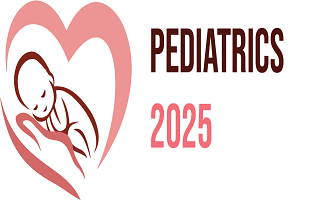Rare Genetic Disorders and Their Management in Pediatrics
Rare genetic disorders in paediatrics present significant challenges due to their complex nature and the need for specialized care. These disorders, caused by mutations in genes, can affect various systems in the body, leading to conditions such as metabolic disorders, neurodevelopmental delays, and congenital malformations. Examples include Duchene muscular dystrophy, cystic fibrosis, and Rett syndrome. Early diagnosis is crucial for managing rare genetic disorders, often involving genetic testing, family history assessments, and specialized screenings. Once diagnosed, treatment strategies are tailored to the specific disorder and its symptoms. While there is no universal cure for many of these conditions, advancements in gene therapy, enzyme replacement therapy, and stem cell treatments offer promising options for certain disorders. For example, in conditions like cystic fibrosis, medications targeting the underlying genetic mutation, such as CFTR modulators, have significantly improved lung function and quality of life.
· Understanding Rare Genetic Disorders
· Common
Rare Genetic Disorders in Pediatrics
· Diagnosis
of Rare Genetic Disorders
· Management of Rare Genetic Disorders in
Pediatrics
· Ethical
Considerations in Managing Rare Genetic Disorders
Related Sessions
Tags
- Genetic Disorders in Pediatrics Conferences
- Genetic Disorders in Pediatrics Conferences 2025
- Genetic Disorders Pediatrics Events
- Genetic Disorders Pediatrics Events 2025
- Genetic Disorders Pediatrics Meetings
- Genetic Disorders Pediatrics Meetings 2025
- Genetic Disorders Pediatrics Hybrid Event 2025
- Genetic Disorders Pediatrics Hybrid Events
- Genetic Disorders Pediatrics 2025
- Genetic Disorders Pediatrics Workshop
- Genetic Disorders Pediatrics Workshops 2025
- Genetic Disorders Pediatrics Congress
- Genetic Disorders Pediatrics Congress 2025
- Genetic Disorders Pediatrics Symposium
- Genetic Disorders Pediatrics Symposium 2025
- Genetic Disorders Pediatrics Conference 2025
- Genetic Disorders Pediatrics Conference
- Genetic Disorders Pediatrics Seminars
- Genetic Disorders Pediatrics Seminars 2025
- International Conference on Genetic Disorders Pediatrics
- International Conference on Genetic Disorders Pediatrics 2025
- Genetic Disorders Pediatrics Event in USA
- Genetic Disorders Pediatrics Event in USA
- Genetic Disorders Pediatrics Event in USA 2025
- Genetic Disorders Pediatrics Summit
- Genetic Disorders Pediatrics Summit 2025
- Genetic Disorders Pediatrics Webinar
- Genetic Disorders Pediatrics Webinar 2025
- Genetic Disorders Pediatrics Webinars
- Upcoming Genetic Disorders Pediatrics Event
